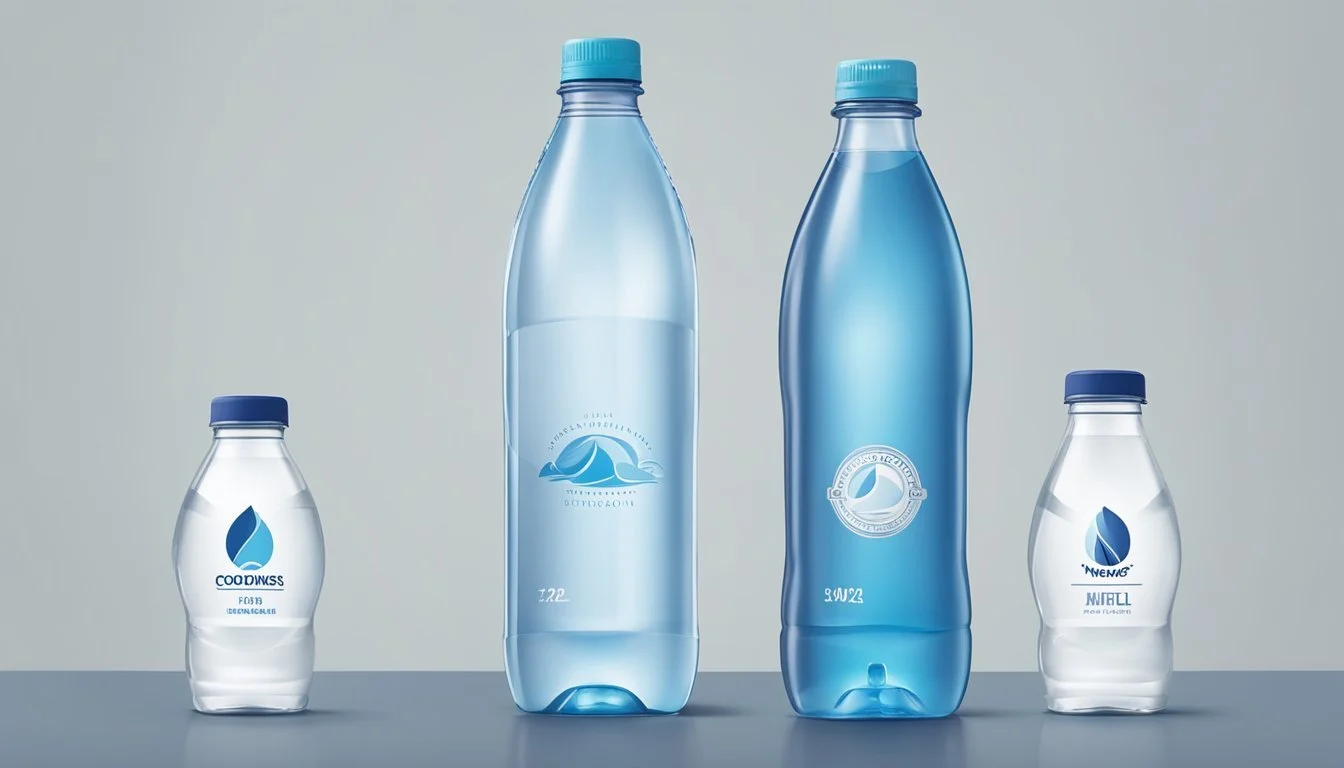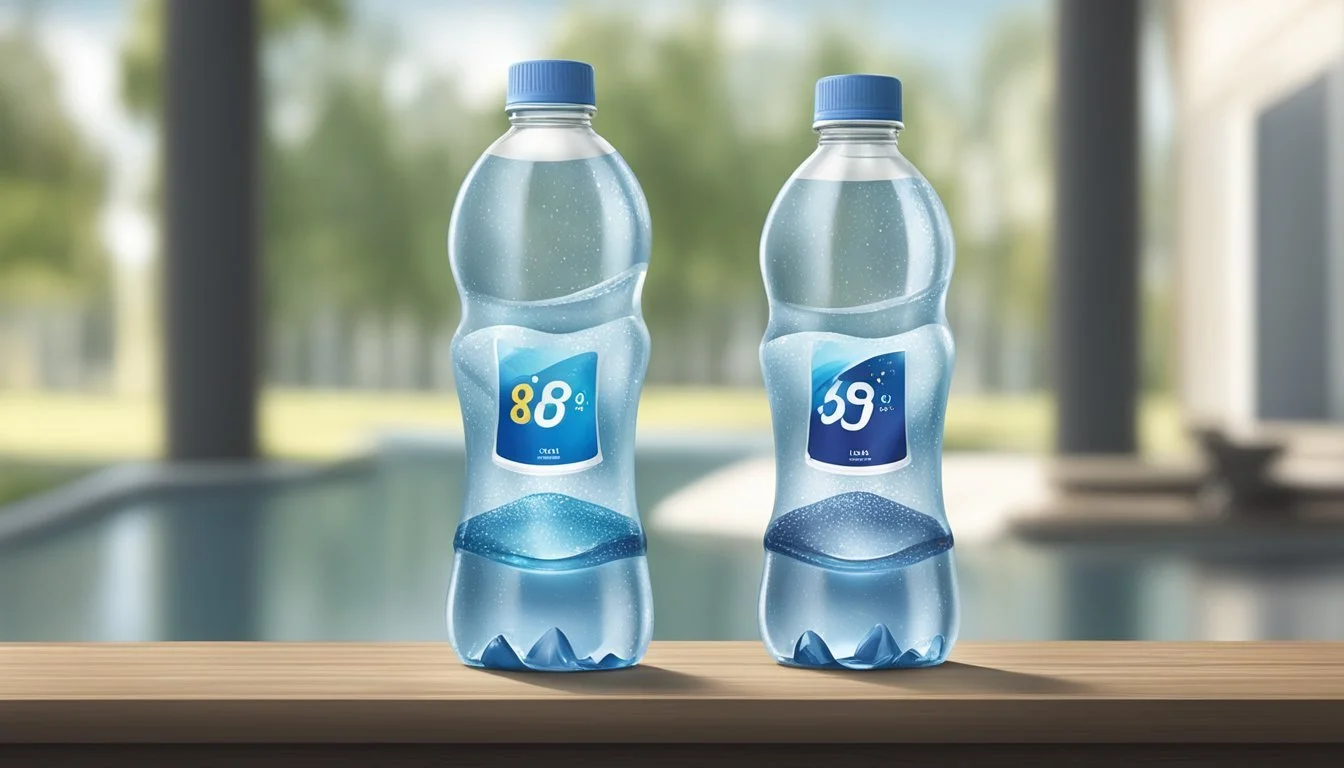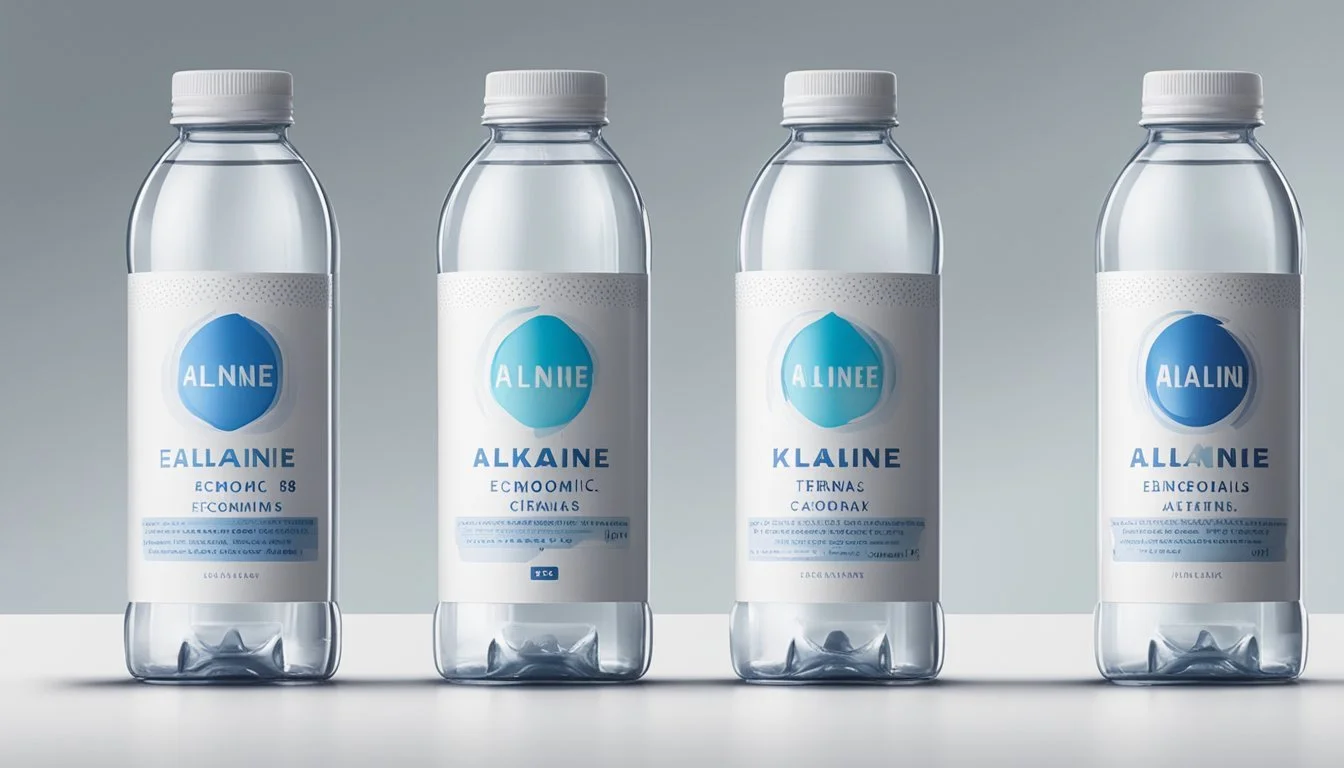Eternal vs. Alkaline88
Which Bottled Water is Better for You?
Choosing the right bottled water can be a daunting task with so many options available. For those seeking alkalinity, the two popular choices are Eternal and Alkaline88. Both brands offer unique benefits, but which one stands out as the better option for consumers?
Eternal Water boasts a natural alkaline pH of 7.8 to 8.2, sourced from ancient and pristine underground springs. Its regular third-party testing ensures consistent quality and purity, making it a reliable choice for those who value natural mineral content and a slightly higher pH. Alkaline88, on the other hand, provides water with a stable pH of 8.8, thanks to its proprietary ionization process. It also contains 84 trace minerals and electrolytes, which are added to enhance hydration and taste.
For those who prioritize higher pH levels and added minerals, Alkaline88 could be the preferable choice. Nonetheless, Eternal offers a trustworthy natural alternative with rigorous quality control. Exploring the unique characteristics of each brand will aid in making an informed decision based on personal preference and health goals.
Understanding Bottled Water
Bottled water encompasses a range of types, each with different sources and levels of purification. Key categories include spring water, alkaline water, and purified water.
What Is Bottled Water?
Bottled water is a commercial beverage that is packaged in plastic or glass bottles for consumer convenience. It comes from various sources, including natural springs, wells, and municipal supplies. Bottling companies often employ extensive filtration and purification processes.
Sources:
Natural springs
Wells
Municipal supplies
These sources undergo treatment methods like reverse osmosis, micro-filtration, and ultraviolet exposure to ensure safety and enhance taste.
Categories of Bottled Water
Spring Water: Sourced from underground formations, spring water flows naturally to the surface. It is valued for its natural minerals and is minimally processed.
Alkaline Water: Alkaline water has a higher pH level than regular tap water, usually achieved by adding minerals like calcium and magnesium. Examples include Alkaline88 and Eternal.
Purified Water: This category involves rigorous filtration processes to remove impurities. Purified water can originate from any source but undergoes extensive treatment to meet strict purity standards.
Each type appeals to different consumer preferences based on taste, perceived health benefits, and source.
Chemical Composition and Health Impacts
Eternal and Alkaline88 bottled waters differ in their mineral content and pH levels, which can influence their health benefits and risks. Understanding the specific composition and the potential impacts on health is essential for making an informed choice.
Minerals in Bottled Water
Eternal water contains natural electrolytes and minerals such as magnesium, calcium, and potassium. These essential minerals are naturally sourced from springs and contribute to hydration and overall health.
Alkaline88 is enhanced with additional minerals like electrolytes for improved hydration. It contains ingredients like pink Himalayan salt, which adds trace minerals and may offer unique health benefits.
Comparing the two, Eternal offers naturally occurring minerals, while Alkaline88 is fortified with added minerals to create a balanced composition.
pH Level and Alkalinity
Eternal water has a naturally alkaline pH, typically around 7.8 to 8.2, sourced directly from natural springs. This natural alkalinity aligns closely with the body’s natural pH, supporting balanced hydration without over-alkalizing the system.
Alkaline88 water is engineered to have a high pH of 8.8 through ionization, which involves adding minerals and electrolytes to raise the pH. The higher alkalinity aims to neutralize acid in the body, potentially benefiting individuals with acid reflux.
While both waters present alkaline properties, Alkaline88's engineered pH is significantly higher.
Health Benefits and Risks
Eternal water's naturally occurring minerals like magnesium and calcium help support bone health, muscle function, and overall hydration. The balanced pH offers gentle hydration without significant alteration to the body’s natural balance.
Alkaline88 claims enhanced hydration, antioxidant effects, and potential benefits for acid reflux due to its higher alkalinity. However, altered blood pH levels from excessive intake of highly alkaline water can have potential health risks.
Both waters provide hydration and essential minerals, but caution with overly alkalized water is advised. Choose based on preference for naturally sourced versus engineered mineral compositions and pH levels.
Branding and Market Presence
Eternal and Alkaline88 both operate in the competitive bottled water market. This analysis will explore their market positions and consumer perceptions.
Market Analysis of Eternal and Alkaline88
Eternal and Alkaline88 have carved niches in the bottled water industry. Eternal focuses on naturally alkaline water, while Alkaline88 emphasizes its high pH and added electrolytes.
Alkaline88 has seen significant distribution and production growth, especially with partners like Bill's Distributing. This move boosts its presence in both major grocery chains and smaller markets.
Eternal is less widely distributed but maintains a loyal customer base. Consumers often choose it for its natural sourcing and clean taste. The brand's marketing highlights purity and natural origins, appealing to health-conscious buyers.
Consumer Perception and Brand Value
Consumer perception of both brands is shaped by their marketing strategies. Alkaline88 leverages endorsements from public figures and highlights its health benefits. The association with athletes and celebrities increases its appeal and perceived value.
Eternal, though not as aggressively marketed, is valued for its authenticity. The brand's emphasis on natural alkaline water resonates with consumers looking for unprocessed, pure options.
Eternal's understated branding contrasts with Alkaline88's active promotion. This difference affects brand perception, with Eternal seen as more niche and Alkaline88 as more mainstream. The clear articulation of each brand’s values attracts distinct consumer demographics within the bottled water market.
Quality and Safety Standards
Examining the quality and safety standards of Eternal and Alkaline88 bottled waters involves scrutinizing their bottling processes, purification methods, and adherence to FDA regulations. Both brands emphasize ensuring purity and safety, but their approaches may differ.
Bottling Processes and Purity
Eternal Water and Alkaline88 utilize advanced purification techniques to ensure their water's quality. Eternal Water sources its water from naturally occurring alkaline springs. It undergoes micro-filtration to remove any potential contaminants while preserving its natural minerals. The company prides itself on maintaining the water's purity from source to bottle.
Alkaline88 employs a different technique. The water undergoes a process that includes reverse osmosis, removing 99.9% of impurities. This is followed by ionization to enhance the water's alkalinity, resulting in a product that is consistent in pH levels and purity. Their emphasis lies in creating a controlled, contaminant-free product through technological processes.
FDA Regulations and Safety
Both Eternal and Alkaline88 must comply with the FDA's stringent regulations to ensure their products are safe for consumption. These standards cover everything from the water's source to the bottling facilities and the materials used in the bottles themselves. Eternal and Alkaline88 use BPA-free bottles, ensuring that harmful chemicals do not leach into the water.
The FDA sets standards for bottled water manufacturing, including testing for contaminants and ensuring safe transport. Both brands claim to have rigorous quality control processes to meet these requirements. By adhering to these regulations, they maintain consumer trust in the safety of their bottled water products.
Environmental Impact and Sustainability
Bottled water production has varying degrees of environmental impact, from plastic usage to carbon footprints. Examining sustainable practices in bottling reveals how companies are minimizing their environmental impact.
Environmental Concerns
Bottled water, including brands like Eternal and Alkaline88, contributes to environmental issues. Plastic production and disposal lead to pollution, with many bottles ending up in landfills or oceans. Plastic usage also involves fossil fuels, which increase carbon emissions. Transporting these products over long distances further exacerbates the carbon footprint.
Natural water sources, such as volcanic rock filtrations and natural springs, are also affected. Over-extraction can deplete these sources, disrupting local ecosystems. The energy-intensive processes used in bottling water add to the cumulative environmental damage.
Sustainable Practices in Bottling
Some companies are adopting more sustainable practices to combat these concerns. For example, Alkaline88 focuses on using BPA-free, recyclable plastic bottles. It also aims to minimize its carbon footprint by optimizing transportation and production processes.
Eternal Water emphasizes its source from natural springs, claiming minimal disruption to ecosystems. The brand is working towards using eco-friendly packaging materials. Additionally, investing in renewable energy for production helps reduce its environmental impact.
Both brands highlight the importance of maintaining and improving sustainability in the bottling industry. By focusing on recyclable materials, minimizing resource extraction, and reducing carbon footprints, they take steps toward more environmentally responsible practices.
Consumer Usage and Preferences
Consumers often choose bottled water based on taste preferences and specific hydration needs. Both Eternal and Alkaline88 cater to different demographics and usage scenarios.
Taste and Hydration Experience
Eternal water is praised for its crisp, clean taste, which many attribute to its natural spring source. This makes it a popular choice among those who value purity and a refreshing drinking experience.
Alkaline88, with its enhanced pH balance, offers a smooth taste due to the addition of pink Himalayan salt. It is sought after by individuals who prefer a beverage that supports hydration and claims of health benefits.
The hydration experience varies slightly; athletes might prefer Alkaline88 for its electrolyte content, while health enthusiasts gravitate towards Eternal for its natural properties.
Target Demographics and Usage Scenarios
Eternal water targets consumers who prioritize health and wellness, including health enthusiasts and daily consumers. Its natural composition and claimed benefits, such as improved digestion and reduced inflammation, attract those looking for everyday hydration with additional health support.
Alkaline88 appeals to a broad range of users, notably athletes and fitness aficionados, who require enhanced hydration during intense physical activity. The pH-balanced, mineral-infused formula provides hydration support, making it ideal for those involved in sports and fitness routines.
Both brands also cater to environmentally conscious users, offering packaging options that align with sustainable practices.
Economic Considerations
Economic factors play a vital role when comparing Eternal and Alkaline88 bottled waters. Understanding the cost and availability of each brand can help consumers make more informed decisions.
Cost Comparison
Eternal Water and Alkaline88 both offer competitive pricing but at different price points. Eternal Water is known for its premium positioning, with a typical 12-pack of 600 ml bottles costing around $39.99. Alkaline88, similarly, offers a 12-pack of 1-liter bottles at a comparable price range of $39.99.
Despite similar price points, Eternal Water bottles are smaller, which may make it less cost-effective. Consumers focused on getting more water for their money might lean towards Alkaline88 due to the increased volume per bottle. Additionally, Alkaline88's larger bottles can be more convenient for those who prefer fewer containers.
Availability and Distribution Channels
Eternal and Alkaline88 utilize various distribution channels to reach consumers. Eternal Water is usually available in grocery stores, health food stores, and online platforms, making it easily accessible. They also pride themselves on sourcing from natural springs, which appeals to eco-conscious buyers.
Alkaline88 has a strong online and retail presence, often found in major grocery stores and online marketplaces. The brand's focus on providing high pH water appeals to health-conscious individuals, and they provide convenient purchase options like subscription services online.
Both brands have a robust distribution network, but Alkaline88's presence in larger bottle sizes may be more appealing for those looking for bulk purchases or less frequent shopping trips.
Conclusion
Eternal and Alkaline88 are prominent players in the bottled water market, each with distinct attributes.
Eternal water is marketed with a focus on natural alkalinity and is sourced from protected underground springs. It highlights its pristine purity and natural mineral content, which can contribute to overall well-being.
Alkaline88, on the other hand, specializes in ionized water with a pH of 8.8. Known for its smooth taste, it aims to provide balanced hydration and is often recommended for its high purity achieved through advanced filtration processes.
Purity and Quality
Eternal: Natural spring source, naturally alkaline, untouched by industrial processes.
Alkaline88: Ionized, pure through micro-filtration and reverse osmosis.
Hydration and Health Benefits
Many consumers believe that alkaline water helps with hydration and maintaining pH balance in the body.
Eternal: Claims benefits such as neutralizing free radicals and improving digestion.
Alkaline88: Focuses on reducing dietary acidity and promoting better bodily function.
Cost and Accessibility
Cost plays a significant role in the decision-making process for many consumers.
Eternal: Prices vary, but generally positioned as a premium brand.
Alkaline88: Competitive pricing, often found in larger quantities.
Sustainability
Both brands emphasize sustainability, but the initiatives they undertake can vary. Consumers should consider each company's environmental practices.
Both Eternal and Alkaline88 have their strengths. The choice between them might come down to individual preferences regarding source, processing, and perceived health benefits.
More About Eternal
Eternal vs Icelandic Glacial: Which Bottled Water is Better?
Eternal vs Kirkland Signature: Which Bottled Water is Better?
Eternal vs Mountain Valley Spring Water: Which Bottled Water is Better?
Eternal vs Richard's Rainwater: Which Bottled Water is Better?
Eternal vs Whole Foods Italian Still Mineral water: Which Bottled Water is Better?
More About Alkaline88
Alkaline88 vs Crystal Geyser: Which Bottled Water is Better?
Alkaline88 vs Kirkland Signature: Which Bottled Water is Better?
Alkaline88 vs Richard's Rainwater: Which Bottled Water is Better?
Alkaline88 vs Talking Rain AQA: Which Bottled Water is Better?
Alkaline88 vs Whole Foods 365: Which Bottled Water is Better?
Aqua Carpatica vs Alkaline88: Which Bottled Water is Better?
Cascade Mountain vs Alkaline88: Which Bottled Water is Better?
Core Hydration vs Alkaline88: Which Bottled Water is Better?
Hawaii Volcanic vs Alkaline88: Which Bottled Water is Better?
Hawaiian Springs vs Alkaline88: Which Bottled Water is Better?
Icelandic Glacial vs Alkaline88: Which Bottled Water is Better?
Mountain Valley Spring Water vs Alkaline88: Which Bottled Water is Better?
Nestle Pure Life vs Alkaline88: Which Bottled Water is Better?
San Pellegrino vs Alkaline88: Which Bottled Water is Better?
Solan de Cabras vs Alkaline88: Which Bottled Water is Better?
Whole Foods Italian Still Mineral water vs Alkaline88: Which Bottled Water is Better?




